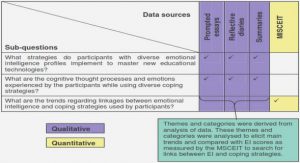Get Complete Project Material File(s) Now! »
CHAPTER TWO Determining the Right to Development in Africa from a Historical Perspective
We, therefore, have no doubt that at the heart of Africa’s development objectives must lie the ultimate and overriding goal of human-centred development that ensures the overall well-being of the people through sustained improvement in their living standards and the full and effective participation of the people in charting their development policies, programmes and processes and contributing to their realization’ African Charter for Popular Participation in Development and Transformation, 1990.
Introduction
In this chapter, in making the determination whether there is indeed a right to development in Africa, I provide a historical account of its African origins with a detailed description of how and the purpose for which it came to be conceptualised as a claimable legal entitlement. I explain how slavery and colonialism contributed to the dispossession and impoverishment of the African peoples, which eventually provoked claims for the right to development. With this extensive narrative, I illustrate how the right to development has evolved not only as a human right as it is generally understood, but indeed also as a development paradigm, which unfortunately has not been explored to make a radical turnaround of the legacy of historical injustices. On this basis, given the resource potential that the continent of Africa is endowed with and the capabilities inherent in its peoples,1 I hope to show that with the right to development as a model for development, Africa would be able to advance much faster than by clinging to paternalistic models such as development cooperation.
With the historical narrative that I provide in this chapter, my purpose is, first and foremost, to establish the basis for interrogating in the next chapter, the proposition to have recourse to development cooperation as a mechanism for the realisation of the right to development.
Secondly, I aim to rely on this background information to justify in chapters five and six, the need for a paradigm shift in development thinking from development cooperation towards greater focus on the right to development as a model for development suited to Africa.
Human rights are inherent entitlements that people possess by virtue of their humanity. For a right to be inherent does not create any legal problem. The problem arises when entitlements that are inherent to individuals or peoples come under attack or are threatened. This often then results in demands for the recognition and protection of those rights. When human rights become recognised and protected by law, they provide right holders the legitimacy to seek justice and protection under the law. To say that there is a right to development means that the African peoples are inherently entitled to that right, which in and of itself does not create any legal problem. The fact that the peoples of Africa began to make assertions for the recognition of their right to development is indicative that this entitlement was threatened or had been contravened. Laying claim to development as a human right thus posed a legal problem in the sense that it provoked contestation as to whether there is such thing as a right to development.2
Owing to the controversy, the legitimacy of the idea of development as a human right requires justification of its nature as an inherent entitlement worthy of legal recognition and protection. One way of making such a determination is by looking back into history; to explore the factors and circumstances that gave birth to claims on the right to development. Scholarship on the right to development has largely associated its origins with provisions of the International Bill of Human Rights, which has been interpreted to imply that apart from the human rights explicitly enshrined in the various instruments, there is an additional entitlement called the right to development.3 Assuming that the idea of development as a human right originated from Africa with its complex development history, its intricate dimensions cannot be understood simply by looking at it as deriving from international human rights law. While this interpretation may not be wrong, it is misleading in that it conceals the African origins of the right to development, distorts its conceptual clarity and thus complicates the mechanism for its realisation.
Relating to the origins, the historical narrative that I provide in this chapter is intended to provide a comprehensive understanding of the right to development in order to deflate some apparent misconceptions and, therefore, pave the way for a proper enquiry into the requirement of development cooperation for its realisation. The chapter is structured as follows: In section 2, I explore the origins of the right to development, bringing into focus Africa’s history of development injustices (2.1), leading to the rejection of colonialism and imperial domination (2.2). I proceed to investigate in section 3, how the concept of the right to development has evolved, with a retrospective view on how it manifested in latent form (3.1) and also how it eventually gained formal recognition both in Africa and internationally (3.2). In section 4, I provide conceptual clarity on the right to development in Africa by exploring its theoretical nature as a human rights concept (4.1), and its pragmatic nature as a development paradigm (4.2). I then wrap up the discussion in section 5 with some concluding remarks.
Origins of the Right to Development
In this section, I explore the genesis of the right to development in order to show that although it has been part of development and human rights scholarship for over half a century, it has not yet fully impacted positively on development practice in Africa where its origins can more accurately be traced.4 This may be explained by the fact that in spite of its African roots, the right to development has largely been abandoned in favour of development cooperation as I explain in chapter three. Without this historical account, the potential value of the right to development in redressing underdevelopment in Africa might be overlooked. Much of the literature on the right to development does not give a true narrative of its actual origins, which therefore complicates its conceptual nature and modalities for implementation. Attempts to trace the origins of the right to development have rather described stages in the evolution of the concept instead of looking at the factors that caused the emergence of such a right. It is true that Africa’s underdevelopment is a product of the interplay between external factors and a host of domestic factors.5 However, a better understanding of the right to development necessitates knowledge of the historical events that gave birth to such a right, which has to do more with the external factors from which most of the domestic factors arose.
A starting point for this analysis is the claim that Africa’s underdevelopment can be directly attributed to exploitation by industrialised countries.6 An exploration of the historical events that motivated claims for the right to development is not only necessary for an understanding of how the right came to be. Such background knowledge is also crucial in determining what the right to development is intended to achieve and to what extent development cooperation could contribute to the realisation of that purpose. The earliest origin of the right to development has been attributed to a statement made by human rights protagonist Eleanor Roosevelt in 1947, in the run-up to the adoption of the Universal Declaration of Human Rights. She is quoted as having said that; ‘we will have to bear in mind that we are writing a bill of rights for the world and one of the most important rights is the opportunity for development’.7 It might not be wrong to interpret this statement as inferring a right to development. It is however, difficult through such an interpretation to establish a connection to the events that gave birth to such a right.
The fact that the right to development as Eleanor Roosevelt might have intended it, did not find its way into the Universal Declaration suggests that it had other, more remote origins, which did not correlate with the immediate causes that triggered the codification of the range of human rights that got enshrined in the Declaration.8 As Cornwall and Musembi have rightly suggested, many of the principles that are articulated as part of the concept of the right to development have been part of struggles for self-determination and social justice, which predate the discourse on human rights.9 This claim motivates the reason to look back beyond 1947; to explore why and how consciousness about historical injustices gradually built up into what eventually became known as the right to development. Empirical studies suggest that Africa’s entangled history with industrialised countries explains part of its current underdevelopment10 and by implication the origins of the right to development.
Africa’s History of Development Injustices
In recounting Africa’s history of development injustices in this section my aim is to provide justification for arguing against development cooperation as a mechanism for the realisation of the right to development, which I contend is instead the appropriate development model for Africa to pursue. This narrative is not intended to showcase Africa’s development gains, but to describe events whose legacy continues to impede aspirations for development on the continent. It is a narrative that is characterised by dispossession, exploitation and extraction of the continent’s human and material resources, accompanied by gross violations of human rights. A study on the right to development in Africa necessitates this historical perspective for the reason that what happened in the past shapes the present and determines the future.
SUMMARY
DECLARATION
DEDICATION
ACKNOWLEDGEMENT
ACRONYMS
CHAPTER ONE: Introduction
1. The problem
2. Research questions
3. Background and motivation
4. Approach and structure
CHAPTER TWO: Determining the Right to Development in Africa from a Historical Perspective
1. Introduction
2. Origins of the right to development
3. Evolution of the right to development
4. Conceptual clarity on the right to development in Africa
5. Concluding remarks
CHAPTER THREE: The Right to Development in Africa and the Geopolitics of Development Cooperation
1. Introduction .
2. Cooperation framework for development
3. Development cooperation and the right to development
4. The right to development in Africa
5. Concluding remarks
CHAPTER FOUR: A Right to Development Dispensation in Africa and the Entitlement to Self-Determination
1. Introduction
2. Framework for implementation
3. Safeguard measures
4. Concluding remarks
CHAPTER FIVE: Towards a Right to Development Governance in Africa
1. Introduction
2. Right to development regulatory mechanisms
3. Right to development governance
4. Concluding remarks
CHAPTER SIX: Conclusion and Recommendations
1. Concluding observations
2. Recommendations
BIBLIOGRAPHY
GET THE COMPLETE PROJECT






